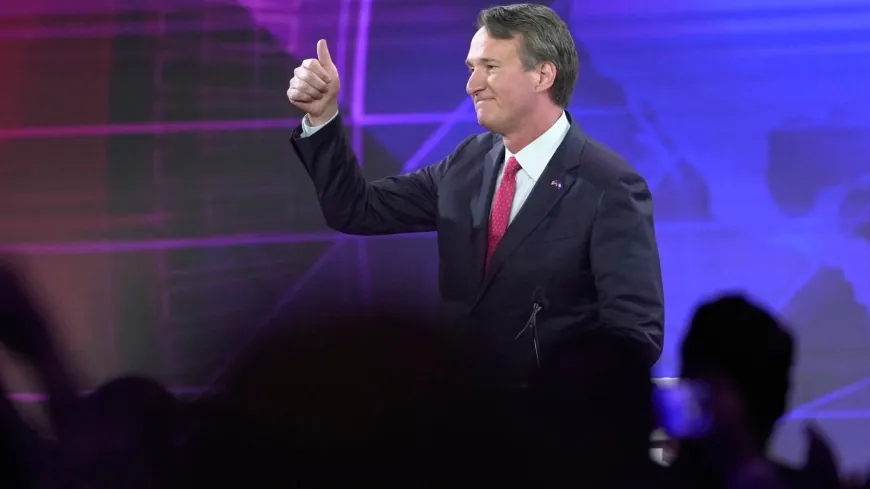Virginia asks US Supreme Court to block order to reverse voter purge

RICHMOND, Va. (WRIC) – Virginia wants the U.S. Supreme Court to stop a judge’s order requiring the state to put roughly 1,600 people back on the voter rolls that Republican state officials say are noncitizens.
A federal appeals court upheld a judge's order for Virginia to temporarily halt its process to find registered voters suspected of being noncitizens -- which recently changed under an executive order from Gov. Glenn Youngkin (R) -- and restore the roughly 1,600 registrations canceled since Aug. 7.
In their rulings, both the appeals court panel and federal judge cast doubt on claims from Virginia Republican officials that all those removed from the state's voter rolls under Gov. Youngkin's order were noncitizens.
Virginia state officials who were sued -- a group that includes Election Commissioner Susan Beals and members of the State Board of Elections -- filed a motion in the U.S. Supreme Court on Monday for an emergency stay of the lower court's order.
"Because the district court ordered Applicants to comply with the injunction by Wednesday, October 30, 2024, Applicants respectfully request that the Court issue the stay by Tuesday, October 29, 2024, or that the Court issue an immediate administrative stay to permit the orderly resolution of this motion," Virginia Attorney General Jason Miyares (R), who was also sued in the cases, wrote in the motion.
"The relief sought is not available from any other court or judge; both the district court and the Fourth Circuit have denied the requested stay," the motion continues.
U.S. District Judge Patricia Tolliver Giles, who was nominated to the court by President Joe Biden (D), agreed with the Justice Department and the advocacy groups that sued over the process arguing that the removals came too close to Election Day in violation of federal law.
The law — the National Voter Registration Act — requires Virginia and other states to stop systematically removing the names of ineligible voters from the rolls within 90 days of the election, known as a “quiet period,” to avoid errors that could take eligible voters off the rolls.
Gov. Youngkin’s office has argued his Aug. 7 order requiring daily updates to voter lists to remove ineligible voters – which came 90 days before the Nov. 5 election – doesn’t violate the law and enforces a 2006 state law signed by Virginia’s then-Democratic Gov. Tim Kaine.
Judge Giles found Virginia’s system was systematic, not on an individual basis as Youngkin’s administration has contended, and ordered Virginia to reinstate those removed during the 90-day quiet period to the voter rolls.
Youngkin and other state GOP officials blasted the judge’s ruling, some, including Miyares, accusing the Justice Department of being politically motivated in its lawsuit and trying to force Virginia to reinstate noncitizens to the voter rolls.
“Let’s be clear about what just happened: only eleven days before a Presidential election, a federal judge ordered Virginia to reinstate over 1,500 individuals–who self-identified themselves as noncitizens–back onto the voter rolls,” Youngkin said in a statement.
But Giles and the federal appeals court panel that upheld her order raised doubts about Virginia’s claims that the voter registrations canceled were all noncitizens, finding that the state provided no proof to show this was the case.
“Appellants err in asserting that the district court ordered them to ‘restore approximately 1,600 noncitizens to the voter rolls,’” the appeals court ruling read. “What the district court actually found was that ‘neither the Court nor the parties . . . know’ that the people ‘removed from’ the voter rolls under the challenged program ‘were, in fact, noncitizens,’ and that at least some ‘eligible citizens . . . have had their registrations canceled and were unaware that this was even so.’”
The advocacy groups that sued have said that eligible voters were incorrectly removed under the program, submitting court filings that contend that at least three citizens had their registrations canceled.
Also, media outlets have found Virginians who are citizens have had their registrations canceled after Youngkin’s order.
Under the executive order from Youngkin, the lawsuits say the DMV sends the state’s elections department a daily list of Virginians who answered “no” to a citizenship question on paperwork or have legal presence documents indicating non-citizenship status.
Youngkin’s executive order notes that local registrars notify those identified as noncitizens of their pending registration cancellation unless they confirm their citizenship within 14 days. Data from a few registrars obtained by 8News shows that eligible voters were removed from the rolls.
The governor has previously questioned the DOJ’s motivation to sue over the program, and his office has repeatedly noted that alleged noncitizens had to voluntarily identify as noncitizens and had 14 days to confirm with their local registrar.
In a memo, Youngkin’s administration called the DOJ’s lawsuit “unprecedented” and defended the state’s process as a requirement signed into law in 2006 by then-Gov. Kaine to remove non-citizens from voter rolls.
In her order, Giles wrote Friday that Virginia’s authority to cancel voter registrations of noncitizens through individualized review or its ability to investigate noncitizens who may have tried to register wouldn’t be limited by her ruling.
“The preliminary injunction applies only to Defendants’ systematic Program which occurred after August 7, 2024,” Giles wrote.
The case drew the attention of former President Donald Trump, who railed against the ruling from Giles and the Justice Department in a social media post. Trump then called into a rally Youngkin held in Chesterfield County over the weekend and announced another visit to Virginia days before the Nov. 5 election.

 VENN
VENN 





